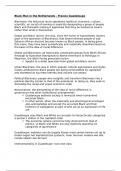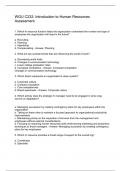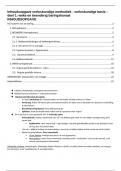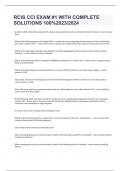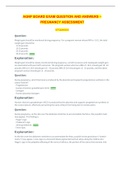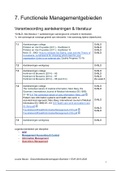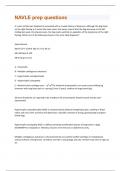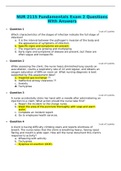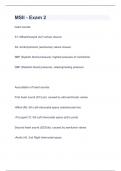Samenvatting
Samenvatting tentamen nationalisme en racialisering
- Instelling
- Universiteit Utrecht (UU)
Dit is een beknopte samenvatting met de hoofdargumenten uit de introductie van Francio Guadeloupe en de hoofdargumenten van Gloria Wekker en Essed en Trienekens. De hoorcollege zijn kort en bondig samengevat naar aanleiding van het laatste recap college. De samenvatting is gedeeltelijk in het Engel...
[Meer zien]
